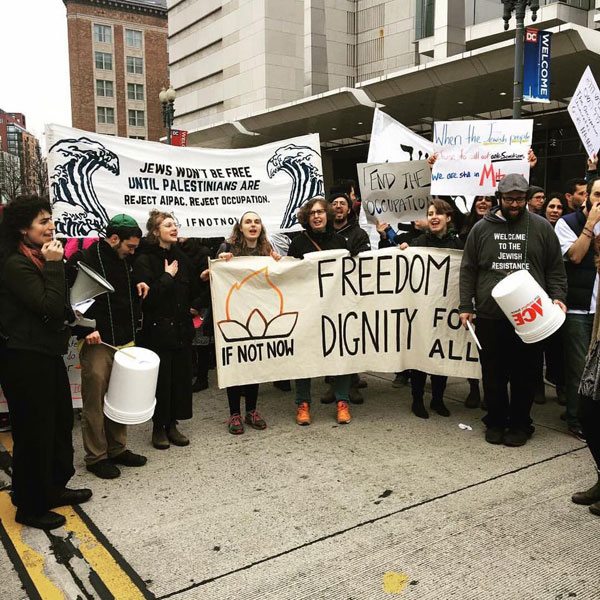
September 19, 2017; Forward
Recently, NPQ looked at the impact that younger Jewish donors are having on the nonprofit infrastructure of the American Jewish Community. Their demands for greater responsiveness to national and international human rights issues pose a threat to the established community order. We wrote then, “If significant numbers drop away because these organizations cannot or will not make the changes being demanded, the strength of this community structure is in jeopardy.”
As the nature of the Trump administration becomes clearer and white supremacists are on the march, even more established Jewish organizations have now been moved to act. Some are joining other churches, mosques, and nonprofit organizations in voicing their protest to this period of exceptional political rawness.
This call to action was exemplified when organizations representing over a thousand American rabbis declined to organize or participate in a teleconference with President Trump to mark the recent Jewish New Year, saying they “concluded that President Trump’s statements during and after the tragic events in Charlottesville are so lacking in moral leadership and empathy for the victims of racial and religious hatred that we cannot organize such a call this year.”
Much of this movement has arisen from synagogues and other groups from the liberal Reform wing of the American Jewish community. Describing their motivation, Minnesota Rabbi Michael Adam Latz told the Forward, “Justice work is pastoral…marches and vigils are religious acts, they’re spiritual acts.”
The Forward’s recent article on Jewish activism chronicled numerous examples of congregational activity.
Trump’s election has energized liberal Jewish groups, in what some call a “tectonic shift” in activism.
Sign up for our free newsletters
Subscribe to NPQ's newsletters to have our top stories delivered directly to your inbox.
By signing up, you agree to our privacy policy and terms of use, and to receive messages from NPQ and our partners.
“Our numbers are off the charts,” said Rabbi Jonah Dov Pesner, the director of the Religious Action Center, the activist arm of the Union for Reform Judaism. “People are streaming through the doors.”
Participation in community rallies, sheltering and protecting vulnerable undocumented neighbors, and speaking out assertively for those under attack have become regular congregational activities in ways seldom seen before the Trump era. The activity in the Jewish community mirrors a growing religious voice of opposition across faith lines. According to the New York Times, “Across the country, religious leaders…are getting involved…to fight back against President Trump’s policies on immigration, health care, poverty and the environment. Some are calling the holy ruckus a ‘religious resistance.’”
For anyone concerned about the current tone of American politics and the policies of the administration, growing political interest within the religious community is a welcome sign of hope for better days ahead. But how will these organizations, whose core business is not political action, manage the tensions this will bring in a nation where the political divisions are so clear? As with the threat posed by generational differences, this organizational challenge will have to be managed if these organizations are to survive and flourish.
The difficulty of reconciling strongly felt differences can be seen in Rabbi Brant Rosen’s decision to leave the pulpit of a congregation he had served and built for more than 17 years because of his stance on Palestine. The Evanston Review said of his decision that “his outspoken views produced a divide he no longer felt he could bridge.”
“There are members of the congregation who are deeply pained by what I say and do,” he said. “This issue is very upsetting, very personal. It’s been very hard for them. That has been affecting the environment in the congregation, and it has been affecting me too.”
The congregation’s president described the difficulty of the moment: “What bothered me is not that we had a dichotomy of opinions, but that I found people dividing themselves into factions and only talking to people that shared their opinions.”
Leaders of organizations that wish the support of a wide constituency may find the current political turmoil more than they can handle. Are there ways forward for constituencies with such basic differences as we now seeing—about race, human rights, and the meaning of democracy—under a common tent? Or, will we start to see significant changes in community structures as established organizations are fractured?—Martin Levine













